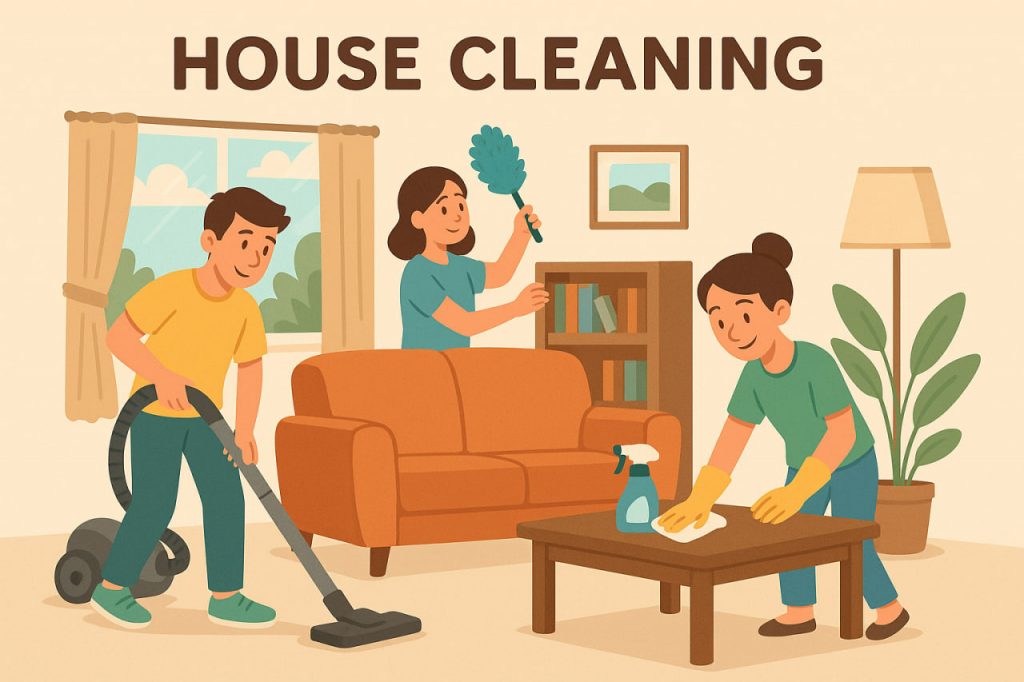Cleaning a home is much more than a routine chore — it’s a practice that supports physical health, mental clarity, and a sense of order. A clean environment reduces stress, boosts productivity, and prevents the spread of bacteria and allergens. Regular and mindful cleaning transforms living spaces into areas of comfort and balance, helping you feel more grounded and focused every day.
Why Cleanliness Matters
A tidy home is directly linked to overall well-being. Dust, mold, and pet hair can trigger allergies and respiratory issues, while clutter increases anxiety and reduces concentration. Studies show that people who maintain clean environments tend to sleep better, eat healthier, and experience less tension. Cleanliness also symbolizes respect — for yourself and for those who share your space.
Essential Cleaning Routine
The key to an effective cleaning strategy is consistency. Daily tasks, such as washing dishes, making the bed, and wiping surfaces, prevent mess from accumulating. Weekly cleaning should include vacuuming, mopping floors, and sanitizing the bathroom and kitchen. Monthly tasks might involve washing windows, organizing closets, and cleaning behind furniture. Setting a schedule helps maintain order without feeling overwhelmed.
Eco-Friendly Cleaning
Modern cleaning no longer depends on harsh chemicals. Many people now use natural alternatives such as vinegar, baking soda, and lemon juice — safe, inexpensive, and environmentally friendly. Reusable microfiber cloths and steam cleaners also reduce waste and plastic pollution. Eco-cleaning supports both personal health and the planet’s sustainability.
Decluttering for Mental Health
A clutter-free space clears the mind. Psychologists confirm that an organized home helps reduce anxiety and improve focus. The minimalist approach — keeping only what you truly need and value — encourages mindfulness and appreciation of simplicity. Sorting items by category and donating unused belongings can turn cleaning into a liberating ritual.
Cleaning as a Shared Responsibility
When everyone contributes, maintaining cleanliness becomes easier and more enjoyable. Family members or roommates can divide tasks according to their abilities and preferences. Teaching children simple chores from a young age builds responsibility and teamwork, making the home a place of shared care and respect.
Interesting Facts
- Dust in homes consists of up to 50% dead skin cells combined with fibers and pollen.
- Lemon juice and vinegar naturally kill many common bacteria.
- Regular cleaning can burn 150–200 calories per hour depending on intensity.
- Japanese cleaning rituals are inspired by Zen philosophy, emphasizing order and mindfulness.
Glossary
- Allergens — substances like dust or pollen that can cause allergic reactions.
- Sanitize — to clean something thoroughly to remove germs and bacteria.
- Microfiber cloth — a reusable cleaning fabric made from very fine synthetic fibers.
- Minimalism — a lifestyle focused on simplicity and reducing unnecessary possessions.
- Eco-friendly — practices that are safe for the environment and reduce pollution.


